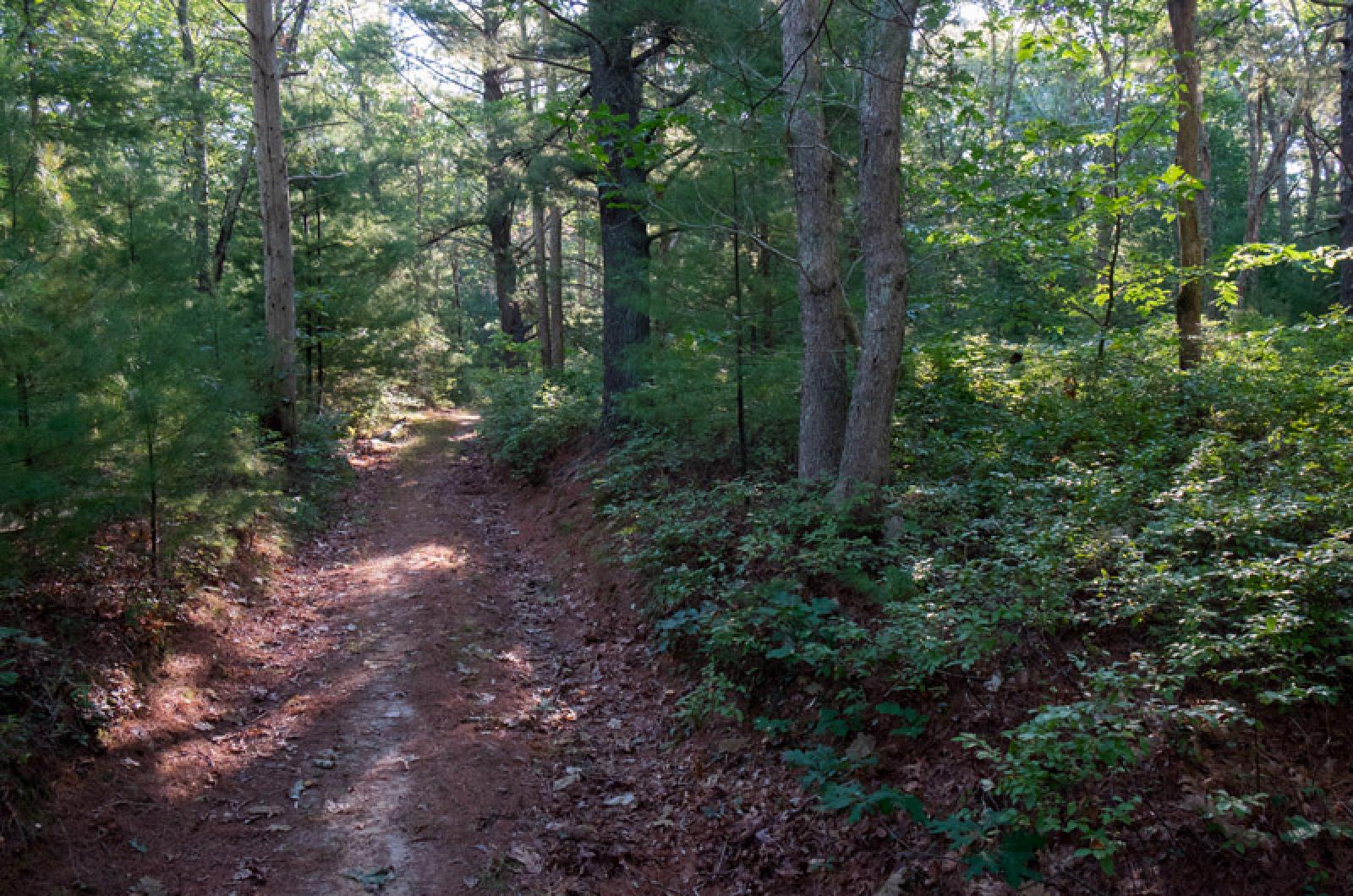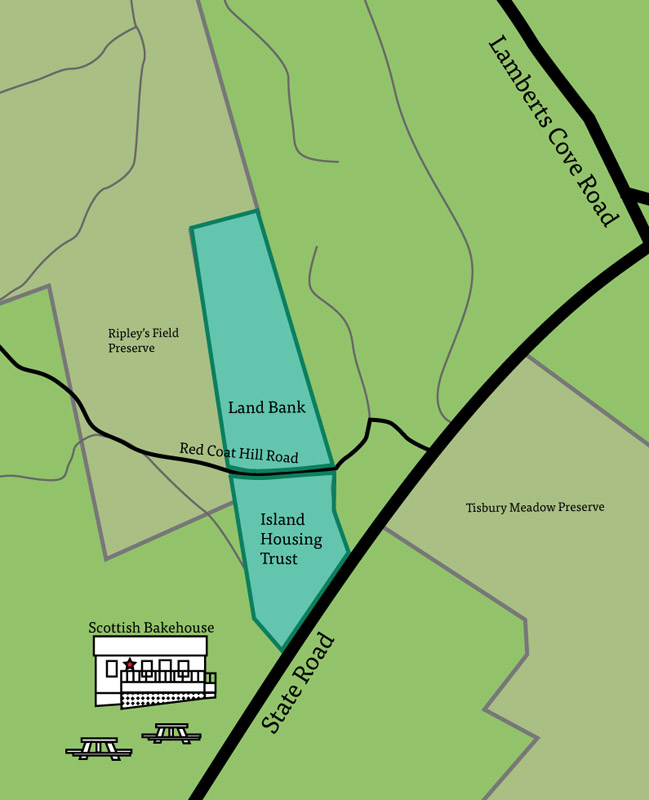The Island Housing Trust and Martha’s Vineyard Land Bank joined forces this week to buy 14.8 acres off State Road in Vineyard Haven, with a plan to build much-needed rental housing on part of the land and leave the remainder in conservation.
The purchase price is $1.2 million; the seller is Boston Community Capital which took ownership of the property in a foreclosure proceeding in 2012. The land bank and housing trust split the cost of the sale down the middle, with the housing trust buying the land outright and then selling a conservation easement on nearly nine acres to the land bank for $600,000. A closing took place Wednesday.
Formerly owned by members of the Norton family, the property is part of what was once planned as Bridge Commons, an affordable living community envisioned by an ecumenical group more than a decade ago out of concern for the growing housing crisis on the Island. Bridge had planned to build a cluster-style development of 30 units on 24 acres at the time. The project was approved by the Martha’s Vineyard Commission and the Tisbury zoning board of appeals in 2003 and 2004, and it survived a superior court appeal from a neighbor. But it was never built. Eight years ago the land bank bought nine acres of the property to add to its Ripley Field Preserve. The 14.8 acres remaining eventually fell into bank ownership.
Philippe Jordi, executive director of the Island Housing Trust, said this week that the trust now plans to take steps to revive the old permits issued by the MVC and the town in order to build an $8 million 22-unit rental housing project on the southern part of the land fronting State Road.
“It’s obviously very exciting,” he said. “And it’s exciting to be able to work with the land bank.” He said IHT money to buy the land came from a private donor. The trust plans to apply for millions in federal tax credits and also state low-income housing grants to help finance the project, which envisions 11 energy-efficient duplexes with a design similar to the one recently completed at Sepiessa in West Tisbury. Some local funding will also be sought, Mr. Jordi said. He said the first phase will involve design and permitting at the MVC and town level; if all goes according to plan the project could take about two years to complete. He said the trust has already begun to reach out to neighbors about the planned development.
Land bank executive director James Lengyel said the nine-acre conservation-restricted portion of the land on the northern end will be added to the Ripley’s Field Preserve, bringing total holdings in the preserve to 86 acres. The restricted part of the land cannot be built on, but could be used for well or septic, Mr. Lengyel said.
The area is morainal and was once sheep fields; today it is wooded and marked by steep escarpments in places. “It goes from very high to very low, and there is part of a large bowl on southeast corner that in the old sheep grazing days was probably a good place for the sheep to nestle in,” Mr. Lengyel said. Red Coat Hill Road, an ancient way, runs roughly east-west through the property and represents the dividing line between the part that will be used by IHT and the undeveloped part protected by the land bank.
Mr. Lengyel said this marks the 12th collaborative purchase by the land bank over the years to help promote an affordable housing initiative. The first such initiative was in 1991, when the land bank helped the county housing authority buy land for affordable rental units at Sepiessa; the remainder of the land there is today a signature land bank nature preserve fronting the Tisbury Great Pond. “The land bank has now a long track record of what we call cooperative acquisitions with affordable housing groups,” Mr. Lengyel said. “What the land bank is able to do is take a wholesale price it has negotiated with developer and allow housing groups to buy in at wholesale price . . . the real problem is the retail basis of land . . . . but we can together buy from an owner at a wholesale price, and our moneys would never mix.”
The land bank collects a two per cent fee on most real estate transactions and uses the money to buy public conservation land, among other things protecting farmland, watersheds and open space.
Mr. Jordi called the partnership an innovative model.
He said talks began with Boston Capital last December.
The project will “help address the Island and town of Tisbury’s urgent need for year-round rental housing,” a press release said.









Comments
Comment policy »